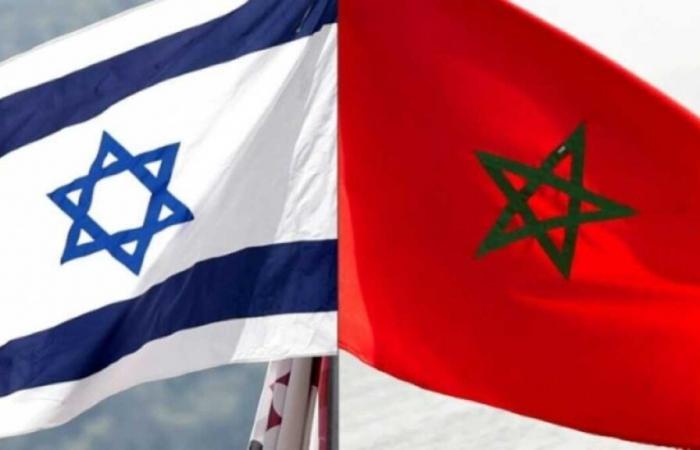The one-year prison sentence for activist Ismail Ghazaoui crystallizes tensions around the policy of rapprochement between Morocco and Israel. This trial, which sanctions a protest action against the transit of Israeli military equipment through the port of Tangier, reveals the gap that is widening between the official policy of normalization and a civil society largely committed to the Palestinian cause.
The arrest and conviction of activist Ismail Ghazaoui illustrate the deep gap between the official policy of normalization with Israel and the support for the Palestinian cause anchored in Moroccan civil society. This trial relaunches a protest movement which has continued to grow since the December 2020 agreements.
A controversial rapprochement with Israel
In December 2020, Morocco joined the Abraham Accords, an American diplomatic initiative aimed at normalizing relations between Israel and several Arab countries. In return, Washington recognized Moroccan sovereignty over Western Sahara.
These agreements paved the way for strengthened cooperation: signing of a military cooperation protocol in November 2021 covering training and technology transfer, launch of direct air links, and increase in trade. In 2022, the two countries signed a free trade agreement and established partnerships in the areas of cybersecurity and intelligence.
A protest that comes at a high price
On November 13, 2023, Ismail Ghazaoui, activist of the Boycott, Divestment and Sanctions (BDS) movement, protested against the stopover at the port of Tangier of two cargo ships from the company Maersk, suspected of transporting military equipment to Israel. Videos shared on social media show the activist and other activists calling on port workers to block ships from docking.
Some dockworkers responded to the call, exposing themselves to sanctions from their employers.
Brought before the Casablanca criminal court, Ghazaoui was sentenced on December 10 to one year in prison and a fine of 5,000 dirhams for “incitement to commit crimes and offenses by electronic means”.
An intensifying mobilization
The conviction sparked a wave of protests. The Moroccan Authority for Support of Political Prisoners (Hemm) denounces “arbitrary repression”. Other activists face prosecution: thirteen members of the Moroccan Front in Support of Palestine are currently on trial in Salé for “participation in an unauthorized gathering” after demonstrating in front of a Carrefour store.
This judicial repression comes in a context of strong popular emotion in the face of the bombings of Gaza. Pro-Palestinian demonstrations are increasing in the kingdom's major cities, bringing together thousands of people despite restrictions.
A fragile balance for the authorities
The Moroccan government finds itself in a delicate position, having to reconcile its new diplomatic commitments with public opinion mainly favorable to the Palestinian cause. The Ministry of Foreign Affairs maintains that normalization with Israel does not call into question Morocco's historic support for Palestine, while continuing the development of bilateral relations with Tel Aviv. A complicated balancing position to hold.
For human rights organizations, these legal proceedings demonstrate a desire to muzzle dissent. Between geostrategic alliances and popular aspirations, Moroccan power must navigate an increasingly narrow line.






